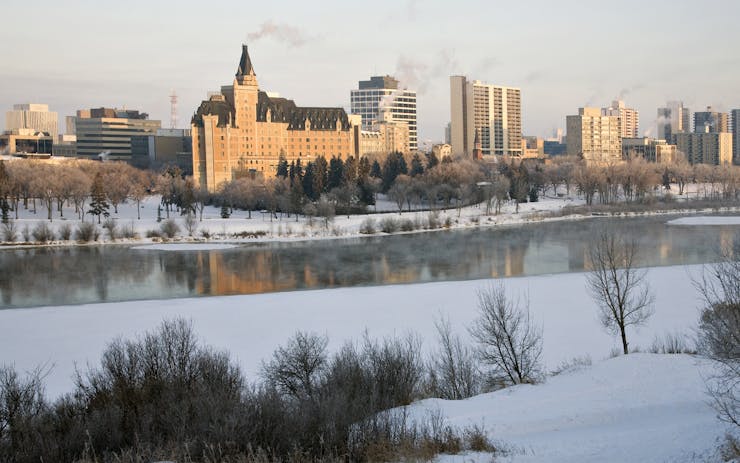Breaking with precedents set by Ontario and Quebec, the Saskatchewan government will not have a monopoly on legalized cannabis, choosing instead to sell the drug through the private sector. The prairie province is the latest region to announce its approach to cannabis distribution, as Canada’s vague summer deadline for legalizations approaches. Here’s what we know about how things will be done in Saskatchewan when it comes to legally selling cannabis.
The Saskatchewan Liquor and Gaming Authority will issue up to 60 cannabis retail permits to private retail outlets in as many as 40 municipalities and First Nation communities.
* The Saskatchewan Liquor and Gaming Authority (SLGA) will issue up to 60 cannabis retail permits to private retail outlets in as many as 40 municipalities and First Nation communities across the province. The permits will be given to communities of at least 2,500 people, with larger districts given additional permits. CBC reports that the province’s largest city, Saskatoon, will be given the option of having seven licences, while Regina will receive six and cities with smaller populations—such as Moose Jaw, Prince Albert, and Lloydminster—will receive two. Eligible First Nations communities and municipalities will be given the chance to opt out from having a cannabis retailer in their community. The number of retail permits will depend on how many community leaders choose to opt out.
* Retail cannabis stores in the province will follow a similar model as private liquor stores. The private sector will be responsible for wholesaling and retailing cannabis, which will be regulated by the SLGA. Stores selling cannabis must do so from a standalone storefront, with the option of also having an online store. Stores are limited to only selling cannabis and related accessories. They also must be able to track and report cannabis inventory to help assure that customers have access to safe, legal product from regulated wholesalers.
Liscencees will be expected to meet ‘good character’ criteria as part of the permitting process.
* The SLGA will work with an independent third party to choose retail operators through a two-phase process. The first phase will screen candidates for financial capacity and the ability to track and report inventory. Phase two will see qualified applicants selected at random through a lottery. Those chosen will be expected to meet “good character” criteria as part of the permitting process. As for what “good character” entails: “The notion of good character is used in all kinds of regulatory environments,” said an SLGA spokesman. “Liquor, gaming, and health-professional regulatory bodies all use the concept of good character. It goes beyond looking strictly at record checks to consider other factors, such as associates of the people involved in the business.”
*Gene Makowsky, the minister responsible for the SLGA, told the CBC that stores already selling cannabis might lose their means to the market under a lottery system. The province has not stated whether retailers will be able to buy supply from wholesalers outside Saskatchewan.
* The CBC reports that an online survey set up by the province showed 45% of respondents wanted to see the stores run by SLGA. However, the SLGA’s Makowsky said the government didn’t want to spend millions of dollars establishing the infrastructure needed to sell cannabis. “It de-risks the taxpayer, certainly,” he said. “It’s an ill-defined market right now. We’re not sure what the future of that is going to be.” He added that the province would gain revenue from taxation and licensing fees, although those details have not been finalized.
* Details about application criteria and timelines, along with permit licensing fees and other related matters, will be finalized in the coming weeks. The province, which has a legal drinking age of 18, is expected to announce its minimum age for cannabis consumption by spring.





